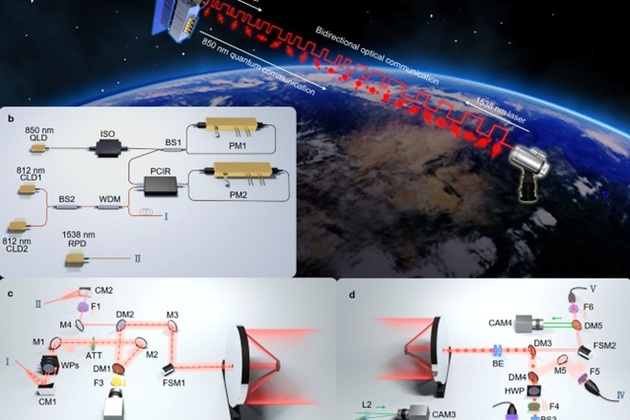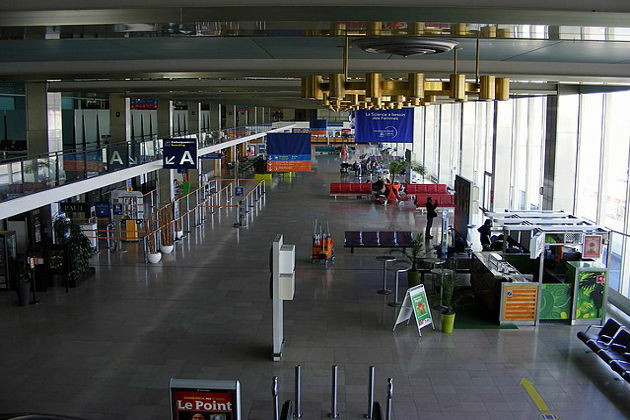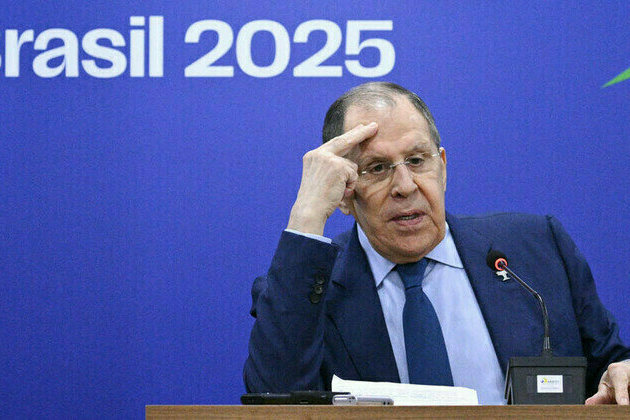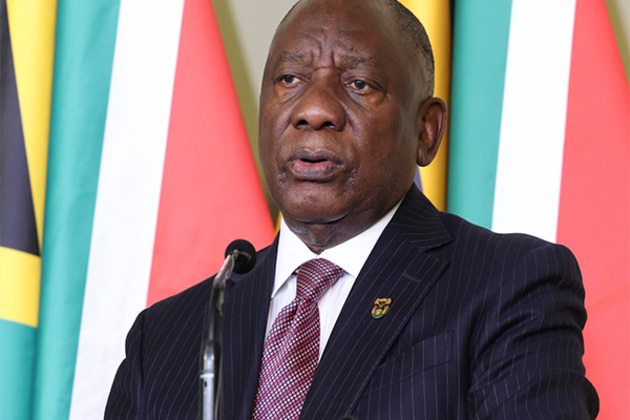Update: Chinese-led team achieves world's first 10,000-km quantum-secured communication
Xinhua
20 Mar 2025, 22:27 GMT+10

HEFEI, March 20 (Xinhua) -- An international team led by Chinese scientists have realized quantum-secured communication across over 12,900 kilometers between China and South Africa.
Using the Jinan-1 micro-nano satellite and compact ground stations, this new breakthrough in quantum technology demonstrates the potential for secure quantum communication on a global scale.
In an international first, the team led by the University of Science and Technology of China (USTC) enabled real-time quantum key distribution (QKD) between the satellite and miniaturized ground stations -- including one in Stellenbosch, South Africa.
Leveraging this engineering achievement, Chinese scientists, in collaboration with their counterparts from Stellenbosch University, have successfully demonstrated the longest-distance hacker-proof communication across hemispheres to date.
The result was published on Wednesday in the journal Nature. The journal's peer reviewer lauded it as "a technically impressive achievement" that represents "considerable progress towards trusted-node constellations for wide-spread satellite QKD services" and shows "the maturity of the satellite QKD technology."
China has for some time been at the forefront of quantum communication satellite research. The country launched the world's first quantum satellite, named Micius, in 2016.
A study published in January 2018 showed that Micius had allowed scientists to achieve QKD across approximately 7,600 kilometers between China and Austria, both situated in the Northern Hemisphere. During that experiment, scientists transmitted images between the two countries, and a 75-minute video conference was successfully held between Beijing and Vienna.
ACROSS HEMISPHERES
Aiming to create a more cost-effective and scalable global quantum communication network, China focused on developing low-cost micro-nano satellites. In July 2022, Jinan-1 was placed in its planned orbit.
The recent QKD test via Jinan-1 achieved quantum-secured communication between the Northern Hemisphere and Southern Hemisphere, demonstrating the technical feasibility of building a global quantum communication network.
QKD provides a technical basis for secure communication. It is based on a physical property in quantum mechanics that makes it impossible to create an independent and identical copy of an arbitrary unknown quantum state -- thus providing an "unhackable" way to exchange encrypted messages between remote users.
In trying to understand the value of quantum-secure communication, one can imagine the scenario of sending information using eggs with shells, in which single-yolk eggs representing "0" and double-yolk eggs representing "1" are used. An eavesdropper in the quantum world has to smash these eggs completely to determine their types, allowing the legitimate sender and receiver to compare results in checking if the eggs had remained intact, thereby detecting any potential eavesdropping.
"One of the Jinan-1 satellite's advances is its ability to enable real-time QKD," said Liao Shengkai, a co-author of the paper and the leader of the Jinan-1 project from USTC.
During the China-Austria communication test via Micius, quantum states downloaded from the satellite required at least three to four days of processing to generate secure keys. For a 75-minute meeting that required over 800,000 keys, the preparation process took more than a month, said Liao.
However, in the case of the Jinan-1 satellite test, when the satellite serving as a transfer station passed over the eastern Chinese city of Jinan and the northwestern city of Urumqi in the space of about 1.5 hours, both secret keys and encrypted data were transmitted, achieving a high level of immediacy.
During a single satellite overpass, as many as one million bits of secure keys were successfully shared, according to the study.
SATELLITE CONSTELLATION
Jinan-1 was launched atop a Lijian-1 carrier rocket from the Jiuquan Satellite Launch Center in northwest China, highlighting the country's efforts to miniaturize quantum satellites -- which is essential for the commercialization of a quantum internet.
Weighing approximately one-sixth of the 600-plus-kilogram Micius, Jinan-1 has shown remarkable progress by integrating quantum and optical communication channels to enable real-time key extraction and code generation.
Despite its smaller size, the low-orbit satellite has a light source frequency six times higher than that of Micius, while its key generation speed has been increased by 2 to 3 orders of magnitude.
The ground stations for Jinan-1 have also achieved extraordinary miniaturization -- their weight plummeted from about 13 tonnes to under 100 kilograms, and the installation time was slashed from months to hours.
"Designed for pure commercial use, Jinan-1 is more energy-efficient than Micius, and its development and launch cost was much lower," said Zhou Fei, a quantum scientist from Jinan Institute of Quantum Technology, who was involved in the design of Jinan-1.
Notably, Jinan-1 recently also integrated with two high-throughput communication satellites and a 5G experimental network in achieving, for the first time, quantum-encrypted 5G voice calls, messages and data communication.
This test proved that quantum satellites can support secure 5G satellite communication and enhance data security where traditional land-based networks fall short, further advancing the potential commercial use of quantum satellite communication.
"Micius solved the 0 to 1 problem, demonstrating feasibility," said Liao. "Jinan-1's work is a step from 1 to 10, that lays the groundwork for more quantum satellite launches in the future."
The team's latest work is "a milestone for the realization of a satellite-constellation for quantum and classical communication," commented Nature's journal reviewers.
China is now considering building a small quantum-secure satellite network and integrating quantum encryption with the country's existing satellite internet plans, Liao added.
 Share
Share
 Tweet
Tweet
 Share
Share
 Flip
Flip
 Email
Email
Watch latest videos
Subscribe and Follow
Get a daily dose of Cape Town Express news through our daily email, its complimentary and keeps you fully up to date with world and business news as well.
News RELEASES
Publish news of your business, community or sports group, personnel appointments, major event and more by submitting a news release to Cape Town Express.
More InformationInternational
SectionTikTok building U.S.-only app amid pressure to finalise sale
CULVER CITY, California: TikTok is preparing to roll out a separate version of its app for U.S. users, as efforts to secure a sale...
Trump defends use of 'Shylock,' citing ignorance of slur
WASHINGTON, D.C.: President Donald Trump claimed he was unaware that the term shylock is regarded as antisemitic when he used it in...
Summer travel in chaos as French air traffic controllers walk off job
PARIS, France: A strike by French air traffic controllers demanding improved working conditions caused significant disruptions during...
Congress weighs Medicaid cuts, sparking alarm in small-town hospitals
OMAHA, Nebraska: With Congress considering cuts totaling around US$1 trillion to Medicaid over the next decade, concerns are rising...
Gas station blast injures 40 in Rome, kids narrowly escape
ROME, Italy: Quick thinking by emergency responders helped prevent greater devastation after a gas station explosion in southeastern...
Weapons pause by Trump signals shift away from foreign wars
WASHINGTON, D.C.: President Donald Trump is drawing praise from his core supporters after halting key arms shipments to Ukraine, a...
South Africa
SectionLavrov slams IMF and World Bank for favoring Ukraine over Africa
Russias foreign minister has called for the reform of global financial institutions and the more equitable distribution of aid Russian...
Kundai Matigimu fined 15% of match fees after breaching Level 1 of the ICC Code of Conduct
Bulawayo [Zimbabwe], July 8 (ANI): Zimbabwe's right-arm seamer Kundai Matigimu was fined 15 per cent of his match fees as he breached...
"Not an accurate representation": South Africa slams Trump 30 pc tariff announcement
Pretoria [South Africa], July 8 (ANI): South African President Cyril Ramaphosa on Tuesday slammed the unilateral imposition of a 30...
India will define BRICS in a new form next year Modi
Issues facing the Global South will get priority under Indias chairmanship of the grouping India intends to define BRICS in a new...
(SP)UGANDA-KAMPALA-RUGBY-TRAINING
(250708) -- KAMPALA, July 8, 2025 (Xinhua) -- Players of Uganda attend a training session for the upcoming men's Rugby Africa Cup Championship...
US close to making deal with India, says Trump amid new tariffs announced against 14 nations
Washington, DC [US], July 8 (ANI): President Donald Trump said on Monday night (local time) that the US is close to reaching a trade...













